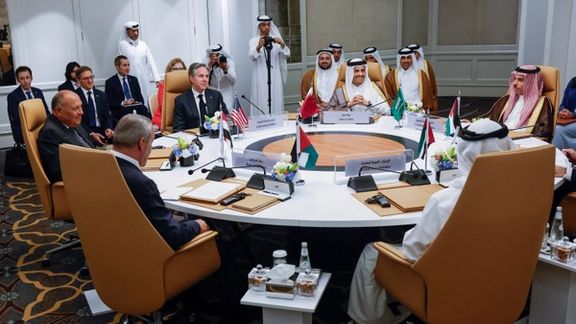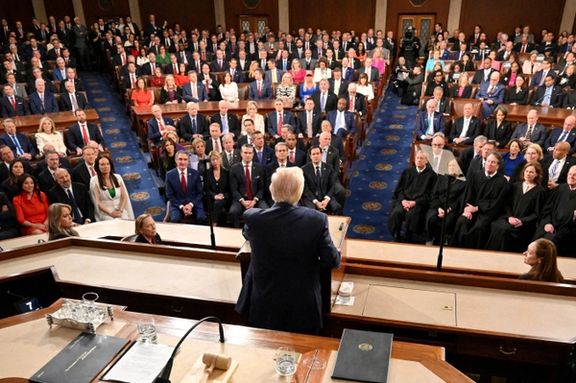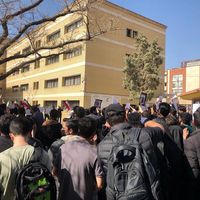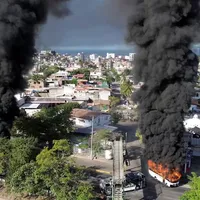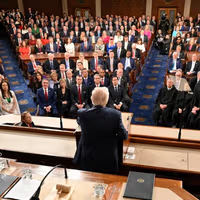Shamkhani is the nephew of Ali Shamkhani – the former Secretary of Iran's Supreme National Security Council who has held various high-ranking positions within the Iranian government and military.
In recent years, the economic activities of the Shamkhani’s family, including Ali Shamkhani’s two sons, his half-brother, wife and son-in-law, have been widely criticized and have made headlines in Iran.
Mo’oud Shamkhani previously served as an admiral in Iran’s navy and a former Islamic Revolutionary Guards (IRGC) commander.
The Tasnim News Agency, affiliated with the IRGC, reported that Shamkhani is accused of "receiving bribes and financial corruption" in the city of Abadan.
The Arvand Free Zone, which spans approximately 34,700 hectares, is a designated economic zone in southwestern Iran.
It includes industrial towns such as Abadan, Khorramshahr, Shalamcheh, and Minushahr and has been the focus of numerous corruption investigations in recent years.
High-profile arrests linked to the investigations include Esmail Zamani, former CEO of the Arvand Free Zone, who was arrested in December 2020, and Ahmad Rostami, former deputy for management development, who was arrested a few months later.
Mo’oud Shamkhani's arrest was made public on Sunday.
He was appointed as the Deputy for Technical and Infrastructure Affairs of the Arvand Free Zone in 2015, following his uncle Ali Shamkhani's appointment to the zone's board in January 2014.
Ali Shamkhani, now a member of the Expediency Discernment Council and a political advisor to the Supreme Leader of the Islamic Republic, has been a frequent target of criticism by “conservatives” in Iran.
In addition to the arrest, the Shamkhani family has been embroiled in various scandals, often related to accusations of nepotism including reports about Ali Shamkhani’s sons -- Hassan and Hossein -- owning dozens of businesses, such as large shipping companies, and misuse of power for financial gain.
Multiple reports have highlighted the lavish lifestyles of his family members both in Iran and abroad, raising questions about the sources of their wealth.
Controversies reached their peak following allegations of extravagant properties and bank accounts held by Shamkhani’s family, including those of his toddler grandson.
